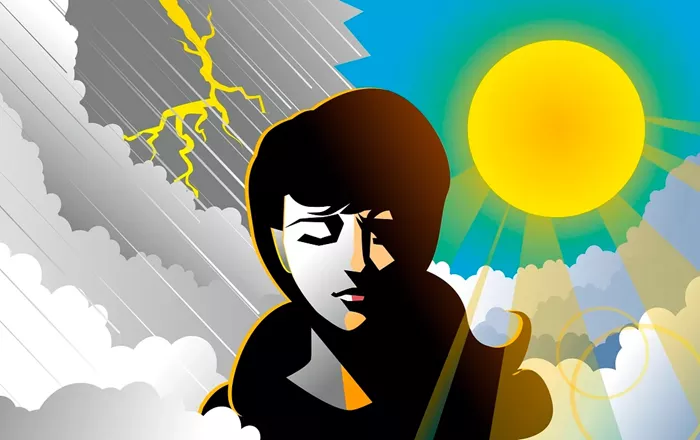Mental illnesses profoundly impact individuals’ lives, affecting their emotions, thoughts, behaviors, and overall well-being. These disorders range widely in symptoms and severity and can be deeply debilitating, affecting every aspect of life. While all mental illnesses present challenges to those who live with them, certain disorders are often considered particularly complex and difficult to manage. This article explores the various aspects of these conditions, including their symptoms, treatment difficulties, and the reasons they may be seen as the hardest mental illnesses to endure.
Defining “Hard” in Mental Health
Before delving into specific disorders, it is crucial to clarify what makes a mental illness “hard” to have. The complexity arises from several factors:
1. Severity and range of symptoms
2. Impact on daily functioning
3. Responsiveness to treatment
4. Stigma and societal understanding
These factors combine in various ways to make certain mental health conditions especially challenging both for those who suffer from them and for the medical professionals who provide care.
Schizophrenia: A Test of Reality
Schizophrenia is often cited as one of the most challenging mental health disorders to manage due to its profound effects on perception, thinking, and emotional regulation.
Symptoms and Challenges: Individuals with schizophrenia may experience delusions, hallucinations, disorganized thinking, and significant social withdrawal. These symptoms can severely impair their ability to function in daily life and maintain relationships or employment.
Treatment Difficulties: Treatment typically involves antipsychotic medications and psychosocial interventions, but adherence can be compromised by symptoms like paranoia or cognitive impairments that hinder awareness of the illness.
Borderline Personality Disorder (BPD): Emotional Turbulence
Borderline Personality Disorder is characterized by extreme emotional instability, impulsivity, complex interpersonal relationships, and a distorted sense of self-identity.
Symptoms and Challenges: People with BPD may experience intense episodes of anger, depression, and anxiety that can last from a few hours to days. They may have difficulty maintaining stable relationships and exhibit fear of abandonment and inappropriate anger.
Treatment Difficulties: BPD can be hard to treat due to the high rates of treatment dropout, the intense emotional crises that require frequent interventions, and the complexities of establishing therapeutic boundaries.
Major Depressive Disorder (MDD) and Treatment-Resistant Depression: The Depth of Despair
While Major Depressive Disorder is one of the most common mental health conditions, its severe form, particularly treatment-resistant depression, poses significant challenges.
Symptoms and Challenges: Symptoms include persistent sadness, loss of interest in enjoyable activities, changes in appetite and sleep, energy loss, and feelings of worthlessness. In its most severe forms, MDD can lead to suicidal thoughts and behaviors.
Treatment Difficulties: Treatment-resistant depression, where patients do not respond to conventional therapies, requires complex treatment strategies that can be difficult to manage and emotionally taxing for both patients and healthcare providers.
Anorexia Nervosa: A Silent Battle
Anorexia Nervosa is an eating disorder characterized by an obsessive fear of gaining weight and an abnormally low body weight.
Symptoms and Challenges: The relentless pursuit of thinness leads to severe dietary restriction and excessive exercise. Complications can be life-threatening, including heart conditions, bone loss, and organ failure.
Treatment Difficulties: Treatment is complicated by the patients’ intense fear of gaining weight and lack of recognition of the seriousness of the condition, making management and recovery a prolonged process.
Obsessive-Compulsive Disorder (OCD): Trapped in a Loop
OCD involves unwanted and intrusive thoughts (obsessions) and repetitive behaviors (compulsions) designed to manage the anxiety these thoughts produce.
Symptoms and Challenges: The compulsions can become so demanding that they interfere significantly with daily functioning. Common compulsions include hand washing, checking, and counting rituals.
Treatment Difficulties: Although treatable through Cognitive Behavioral Therapy (CBT) and medications, some forms of OCD are resistant to treatment, and symptoms can be severe enough to disable the person.
The Role of Stigma and Misunderstanding
Stigma remains a significant barrier to seeking help for mental health disorders. The misunderstanding surrounding these conditions can lead to social isolation, discrimination, and inadequate support, compounding the challenges faced by those affected.
Innovations in Treatment: Hope on the Horizon
Advancements in psychiatric treatment and a deeper understanding of the genetic and environmental factors contributing to mental health disorders offer hope. Innovations such as personalized medicine, new pharmacological approaches, and integrated treatment plans are improving outcomes for many suffering from these conditions.
Conclusion: A Call for Compassion and Understanding
Understanding which mental illnesses are the hardest to have is less about ranking their difficulty and more about recognizing the unique challenges they present. Increased awareness, research, and compassion can aid in developing more effective interventions and support systems for all mental health disorders. As society progresses in its understanding and treatment capabilities, there is hope that the burden of living with these challenging conditions will lessen, leading to improved quality of life for those affected.
[inline_related_posts title=”You Might Be Interested In” title_align=”left” style=”list” number=”6″ align=”none” ids=”7755,7752,7746″ by=”categories” orderby=”rand” order=”DESC” hide_thumb=”no” thumb_right=”no” views=”no” date=”yes” grid_columns=”2″ post_type=”” tax=””]
































